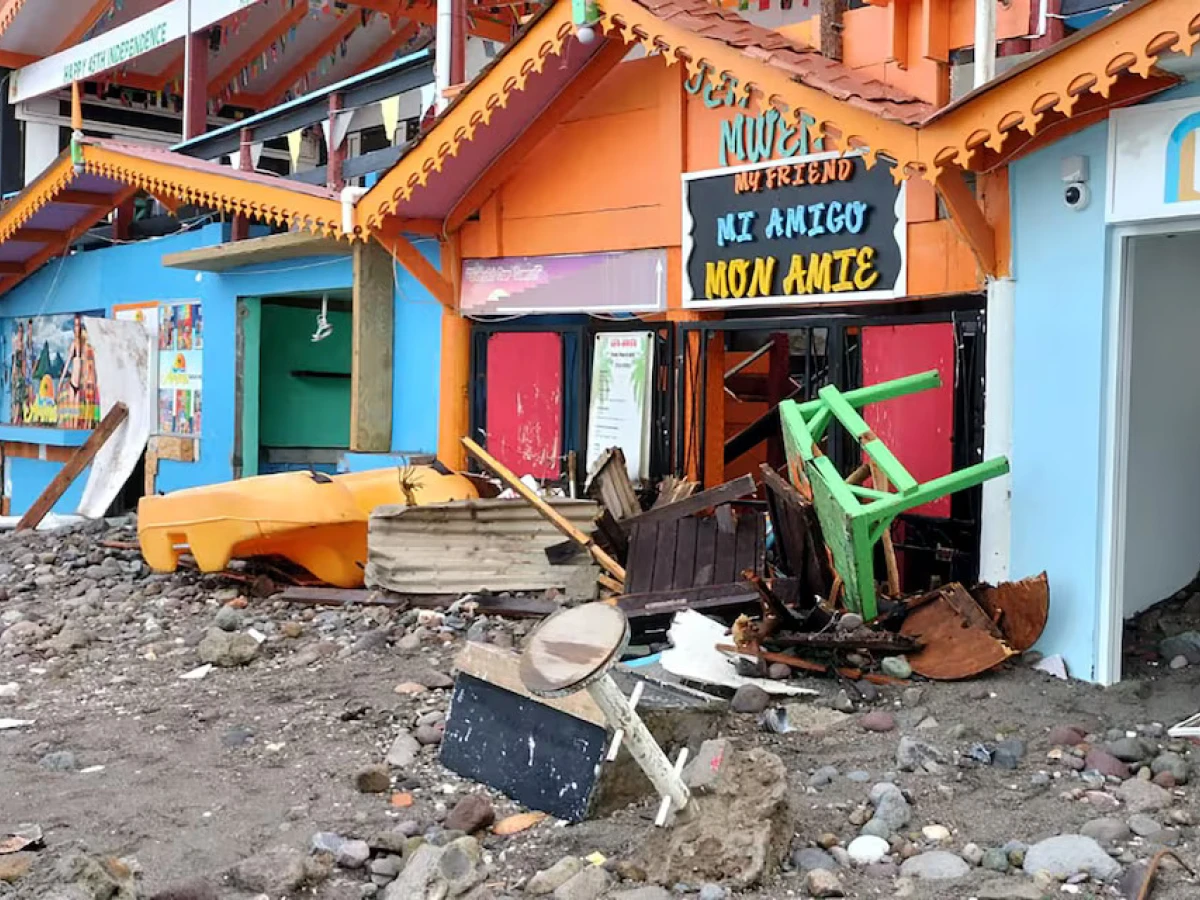
Deadly Hurricane Beryl churns toward Jamaica, causes 'immense destruction'
Climate change likely contributed to Beryl's early formation, while also driving how quickly it intensified.
KINGSTON, Jamaica, July 2 (Reuters) - Hurricane Beryl barreled toward Jamaica as a powerful Category 5 storm on Tuesday after battering smaller islands in the eastern Caribbean, and scientists cited human-caused climate change as the likely culprit for the storm's rapid strengthening.
The unusually early hurricane downed power lines with its powerful winds and unleashed flash floods. It has so far claimed at least two lives.
Beryl, the 2024 Atlantic season's first hurricane and the earliest storm on record to reach the highest category on the Saffir-Simpson Scale, hit St. Vincent and the Grenadines especially hard, according to Prime Minister Ralph Gonsalves.
"The hurricane has come and gone, and it has left in its wake immense destruction," he said. On one island in the Grenadines archipelago, Union Island, 90% of homes had been "severely damaged or destroyed," he added.
The prime minister confirmed one death, and said more fatalities could be confirmed in the coming days.
In Carriacou Island, part of Grenada, another person was killed on Monday due to Beryl, which also caused wide-scale power outages across the island.
The hurricane, packing maximum sustained winds of 160 miles per hour (257 kph), is currently located about 555 miles (893 km) east-southeast of the Jamaican capital of Kingston, according to an advisory from the U.S. National Hurricane Center (NHC) on Tuesday.
The NHC estimates that the massive weather system is moving toward the west-northwest at a speed of 22 mph (35 kph).
"Beryl is forecast to remain a powerful hurricane as it moves across the Caribbean Sea later this week," according to a NHC post. It said a hurricane warning is in effect for Jamaica, where Beryl is expected to make landfall on Wednesday.
In Jamaica, men hauled fishing boats out of the water and tied them down in preparation for the hurricane's arrival, while others noted there was still time on Tuesday morning.
"We Jamaicans don't take things serious," said Standford Pusey, as he showed off items secured with plastic tarps.
In Fort-de-France on the island of Martinique, north of St. Vincent, video shared on social media showed heavy flooding on streets as locals attempted to clear away debris.
NHC also issued a hurricane watch for the southern coast of Haiti, as well as the islands of Grand Cayman, Little Cayman and Cayman Brac.
Some weakening is expected later on Tuesday, but Beryl will likely remain at major hurricane strength and is expected to bring 4-12 inches of rainfall to Jamaica and southwestern Haiti through late Wednesday, according to the NHC forecast.
Dozens of vessels in the storm's path risk being affected, with diversions seen in the Caribbean, according to Vortexa, which provides energy-cargo tracking data.
The unusually early timing and rapid intensification of the storm is partly due to warmer ocean temperatures, scientists say.
Climate change likely contributed to Beryl's early formation, while also driving how quickly it intensified, according to scientists surveyed by Reuters, which could provide an unsettling preview of future storms.
Global warming has helped push temperatures in the North Atlantic to record highs, said Christopher Rozoff, an atmospheric scientist at the U.S.-based National Center for Atmospheric Research. The warmer waters lead to more evaporation, which fuels more intense hurricanes featuring higher wind speeds, he said.
Beryl jumped from a Category 1 to a Category 4 storm in under 10 hours, according to Andra Garner, a Rowan University meteorologist. That marked the fastest intensification ever recorded before September, the peak of the Atlantic hurricane season, she added.
Video from Barbados showed waves pounding the shore of the island, breaching walkways, felling palm trees and flooding roads in Bridgetown, the capital.
Beryl is also expected to approach Mexico's Yucatan Peninsula, dotted with beach resorts popular with tourists, on Thursday night.




